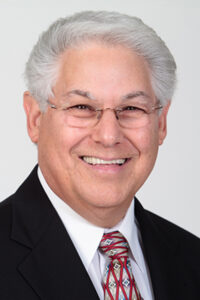
The ADA’s new Professional Interest Group on Eye Health will present a one-hour discussion beginning at 12:00 p.m. CT Sunday, June 14. During the presentaton, two optometrists will answer Common Questions Encountered by Diabetes Care Providers Related to Eye Issues Experienced by People with Diabetes.
Richard J. Shuldiner, OD, FAAO, FIALVS, will discuss aids that can help patients with low vision, which is defined as vision loss that cannot be corrected by medical or surgical treatments or conventional eyeglasses. A giant in the field, Dr. Shuldiner is President of the International Academy of Low Vision Specialist and was named to the ADA’s Eye Health Leadership Committee earlier this year.
Dr. Shuldiner said that low vision specialists are significantly underused, as not enough diabetes clinicians understand how they can help improve quality of life for their patients with significant vision problems. “The No. 1 question I get from patients over the last 40 years is why didn’t my doctor tell me this was available?” he said.
Low vision doctors determine a patient’s vision level and discuss daily tasks that are giving them trouble. Magnification devices such as telescopic eyeglasses, microscope eyeglasses, hand and stand magnifiers, and electronic magnifiers can be used to help patients perform those tasks. During an evaluation, demonstrators help the patient determine what works best for specific tasks such as reading, writing, and using computers.
There are also aids that allow people with some vision loss to continue driving. Dr. Shuldiner said he’s often found that doctors don’t know the vision requirements in their states and have misinformed patients that they had to stop driving when, in fact, they could keep driving with the correct aids.
“(Low vision specialists) deal with function, and most people in health care deal with medical issues. Once they find that there’s nothing more medically they can do, they don’t realize that there’s a next step,” Dr. Shuldiner said. “It’s obvious when somebody loses a leg that you think of using a prosthetic leg, and it’s pretty obvious where you’re going to refer the person. But when it comes to vision loss, it’s not well known there’s an option. That’s been my job for the last 40 years—educate the professionals who are working with these people.”
The International Academy of Low Vision Specialist’s website lists low vision doctors in the U.S. and Canada that diabetes professionals can contact for more information and referrals.
Richard M. Calderon, OD, FAAO, Associate Chief of Clinical Practice and Chief of Clinical Operations at Beetham Eye Institute, will discuss common ocular symptoms and questions encountered by primary care providers, diabetes education specialists, and diabetologists. With a clinical interest in ophthalmic imaging and specializations in ophthalmic ultrasound, electroretinography, and ophthalmic technology in both the research and clinical care settings, Dr. Calderon has been involved in diabetic retinopathy care and research since 1975.
VIEW THIS PRESENTATION
Already registered?
View this presentation at ADA2020.org.
Not yet registered?
Register now to access all presentations from the Virtual 80th Scientific Sessions.